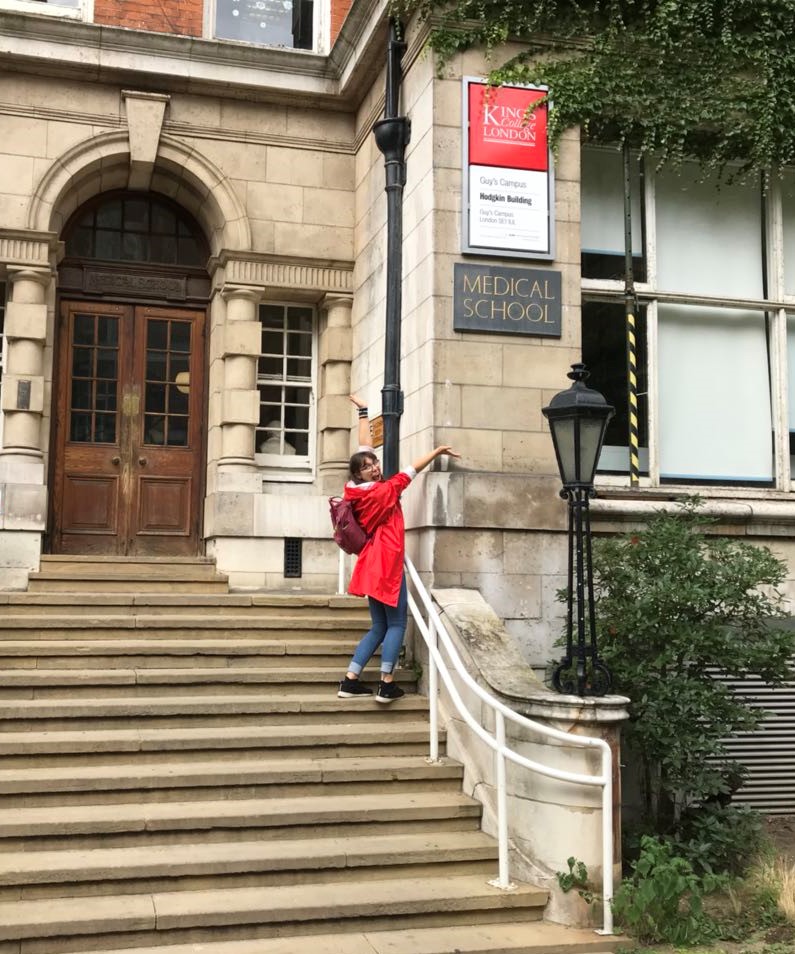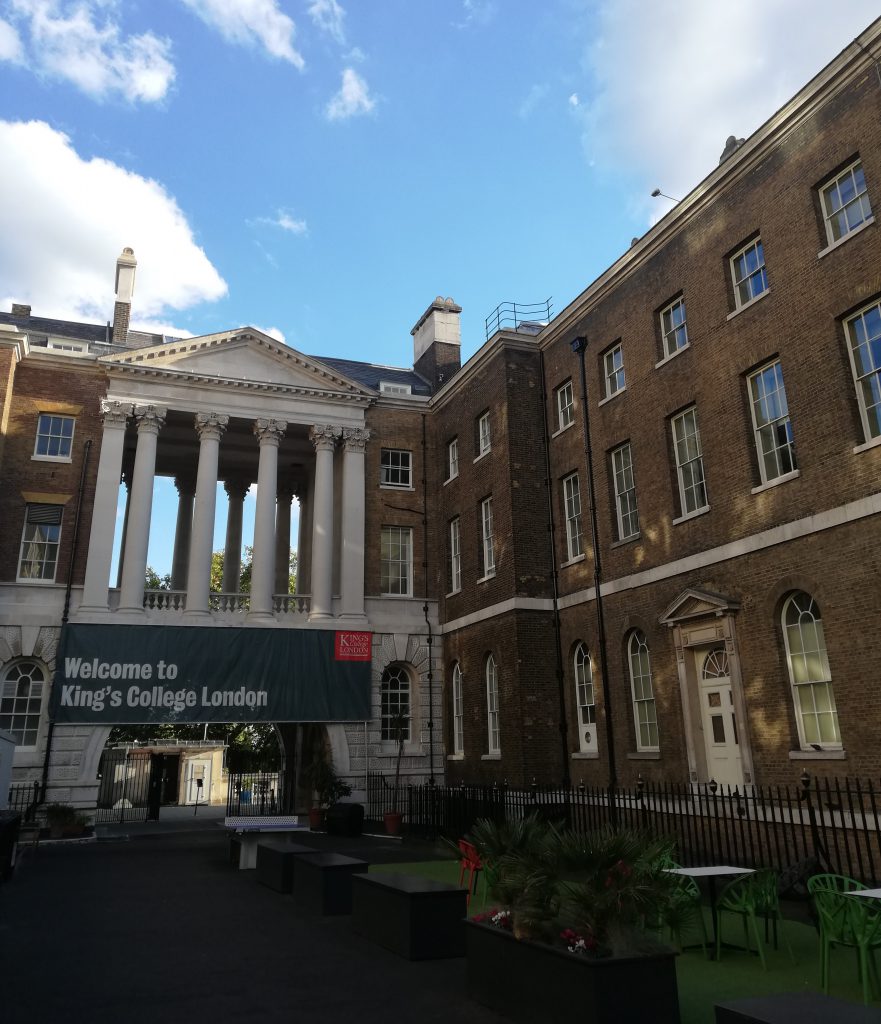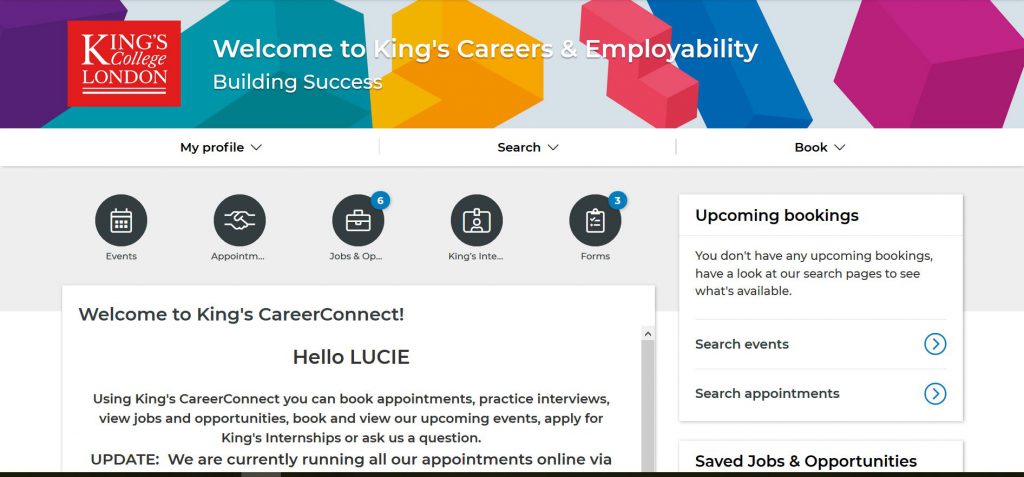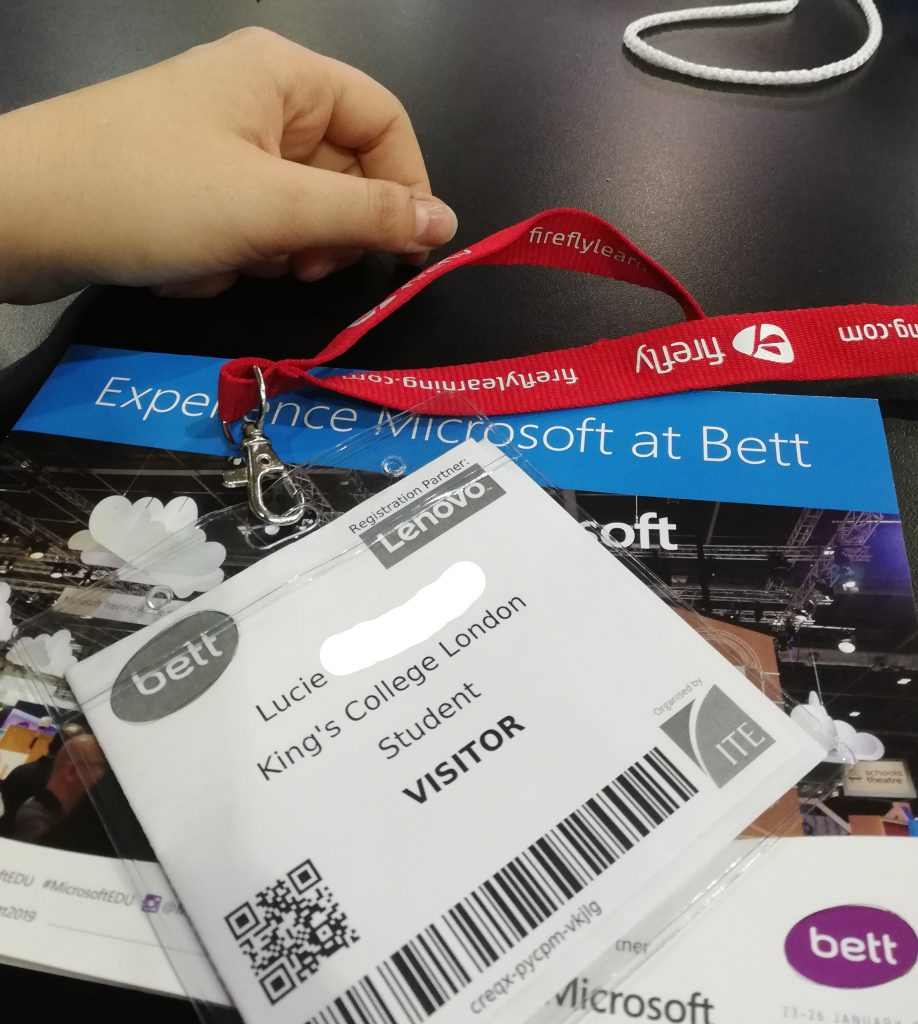Lucie Nepovimova, 2nd Year Biochemistry

Firstly, let me introduce myself – I am Lucie and I am a 2nd year Biochemistry student. Biochemistry is part of the School of Bioscience Education, and thus part of the Common Year One courses (CYO). I actually did not originally choose Biochemistry as my major – I went to King’s to study Biomedical Sciences. Prior to coming to King’s I knew I loved chemistry but that I wanted to do research in the area of human disease. It seemed to me that Biomed would be a perfect fit by combining both. However, first year showed me that Biochemistry would actually be an even better fit – providing me with insights into structural biology, metabolism or genetics whilst tying it all together with the latest research in humans and diseases affecting them. CYO is a great way of discovering many areas from biochemistry, through anatomy to neuroscience and will give you a hunt of what you might want to specialise in during and after your undergraduate studies. Here I bring you my top tips about how to get the most out of your bioscience degree career-wise!
1. Use the flexibility of your degree
What I love the most about the Biochemistry course, and other courses within the School of Bioscience Education, is the flexibility it provides. Throughout your studies you get a wide variety of modules to choose from enabling you to either already start focusing on what you are interested in or taking modules from any department and exploring what it is that you enjoy! Other than deepening knowledge, one also gets to work on their skills – the course itself is filled with lab experience gained from lab practicals, soft skills gained from group projects but also time management when your coursework builds up.

In first year, you do not get to choose any of your modules – but that’s actually a big plus! You get to meet a lot of the School’s staff and get a taste of each of the CYO degrees. It helps you get a good foundation in all the life sciences and then you are ready to go into more depth in years 2 and 3, whilst also knowing what to expect from some of the lecturers. In year 2 you have a much bigger variety – you can use it to explore what you enjoy but you may also start specialising. Insider tip though – if you have a specific career path in mind look at year 3 modules already when choosing your year 2 modules as some modules have prerequisites.
2. King’s Careers and Employability service is there to help
The King’s Careers and Employability service is provided by KCL and it has so many opportunities for you to develop your employability skills! They offer many workshops, organise career fairs and discussion panels – which I personally found really useful to learn more about the careers available to life science graduates, because once you graduate your options go way beyond the lab. They are very helpful no matter where you are in your career decision-making – if you have no clue what you would like to do after uni or if you already have a specific company or topic you want to work on, they are there to help!
Additionally, they offer one on one advising – you can practice interviews with them or get help with your application or CV. They have a great page where you can find all the resources available in one place, including information on current internship opportunities.
Last but not least, I strongly advise you to get a King’s CareerConnect account ASAP – you can sign up there for the King’s Careers workshops but mainly you can find lots of term time and holiday job opportunities and find out about all the various events (which may not be advertised elsewhere). For more information on KCC and King’s Careers in general go to kcl.ac.uk/careers.

3. Make use of the location
London is a big and diverse city – the opportunities are nearly endless! Whatever you might be interested in, be it in academia, industry or the entrepreneurship sphere, I am sure you will find somebody doing it in London. There are so many universities which seethe with lots of research, the Crick Institute, start-ups, headquarters of companies big or small and I could continue… Don’t hesitate to contact people in places which excite you – the worst thing that can happen is they will say no. While you are in London, you definitely should consider getting a summer or term time internship in your area – be it in academia or in industry. Many companies but also King’s itself offer various programmes – there is more information on this on the King’s Careers website.
4. Get Involved
There are many ways to get involved outside your studies and there are two main ways – first, you may join a KCLSU society – from sports clubs to subject societies I am sure you will find many you could be interested in. It’s great to start getting involved with your area of interest so do consider joining a subject society like the KCL Biochemistry Society or the Biomedical Science Society – they offer socials for networking with other students and King’s staff but also interesting talks, lab tours or advice! Moreover, after a year or two at King’s if you want to get more in depth you may run for a position in the committee – be it a subject society or not, it’s a great way to demonstrate that you stay active beyond your studies and it will help you develop many skills.

Secondly, being a student comes with one great perk – many professional bodies and conferences offer student memberships which are either discounted or even for free! For example, you can become a member of the British Pharmacological Society for free and you will get regular updates from the British Pharma sphere about conferences, professional training or novel research. Being a member is a great way of interacting with your area of interest, as pretty much every life science has a branch, and may give you a good insight on what’s currently going on, which you may pull out at an internship/job interview but also put on your CV. Owing to this, I attended a conference on education technology (BETT), where I got lots of insight into that industry as well as a Central European Conference, which is a very niche thing, I have to admit, but it has given me the opportunity to look into Central European healthcare systems, which was one of the core topics there. The main point is not being afraid of using these conferences and society memberships to your benefit and discovering as much as possible to help you determine what you want to focus on in your career.
5. Use LinkedIn
Last but not least, an underestimated source for your career growth is LinkedIn. It was actually one of the first tips I received at King’s but I myself hesitated for a long time before creating my profile there. LinkedIn is a great tool for two main reasons – it helps you concisely present yourself to employers but also it is a huge database of job opportunities, graduate programmes and internships! If you put in a bit of time, you can have a list of all your skills, experience and education all in one place. On the other hand, if you spend some time looking, you may find really interesting job offers there as employers use it often not only to recruit workers for full time positions but also summer programmes, year in industry placements etc.
Finally, I really hope these 5 tips will help you at least a bit with how you can go beyond your studies to gain more experience and find your career of interest, they are things that helped me personally but hopefully you will get some inspiration from them yourself. However, if you still feel clueless, definitely contact King’s Careers and Employability Service, they are lovely people who are always happy to help.
